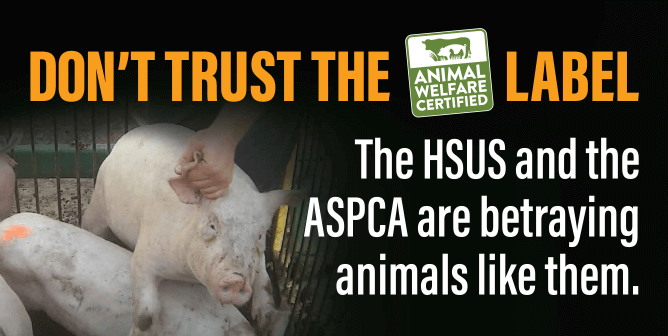PETA Sues the California Milk Board for False Advertising
In December 2002, PETA filed a lawsuit against the state-supervised California Milk Advisory Board (CMAB) for portraying idyllic conditions in its “Happy Cows” advertisements, in stark contrast to the actual conditions in which California’s dairy cows live. The CMAB ads carry the tagline “Great cheese comes from happy cows. Happy cows come from California” and depict cows enjoying acres of rolling, green pastures, raising their young, and engaging in other natural behaviors.
In fact, the state’s dairy cows typically live on extremely muddy, feces- and urine-soaked lots devoid of even a bush, a blade of grass, or any vegetation. The cows are repeatedly impregnated and are genetically and chemically manipulated to produce abnormally high quantities of milk. Their newborns are torn from them, and many of the males are relegated to dark, filthy veal crates. Dairy cows are worn out and prodded off to slaughter at just a fraction of their natural life expectancy.
While California has strict laws against false advertising, Judge David Garcia of the Superior Court of California, County of San Francisco, ruled that the government can’t be sued for violations of these laws, no matter how egregious such violations may be.
PETA Appeals to California’s First Appellate Court
California’s false-advertising laws are designed to protect consumers from being deceived, and deception is deception, whether carried out by the government or by private business. So PETA appealed to a higher court, arguing that making the government accountable for lying to the public is good for the people of California and good for the cows and calves whose suffering is hidden behind the CMAB’s deceitful campaign. Once again, the court ruled that it’s legal for the government to lie to consumers.
PETA Takes Its Case to the California Supreme Court
In a ruling that leaves cows and consumers unprotected from government misconduct, the California Supreme Court refused to review the Appellate Court ruling. With this action, the Supreme Court left standing the ruling that the state is exempt from its own false-advertising laws.





